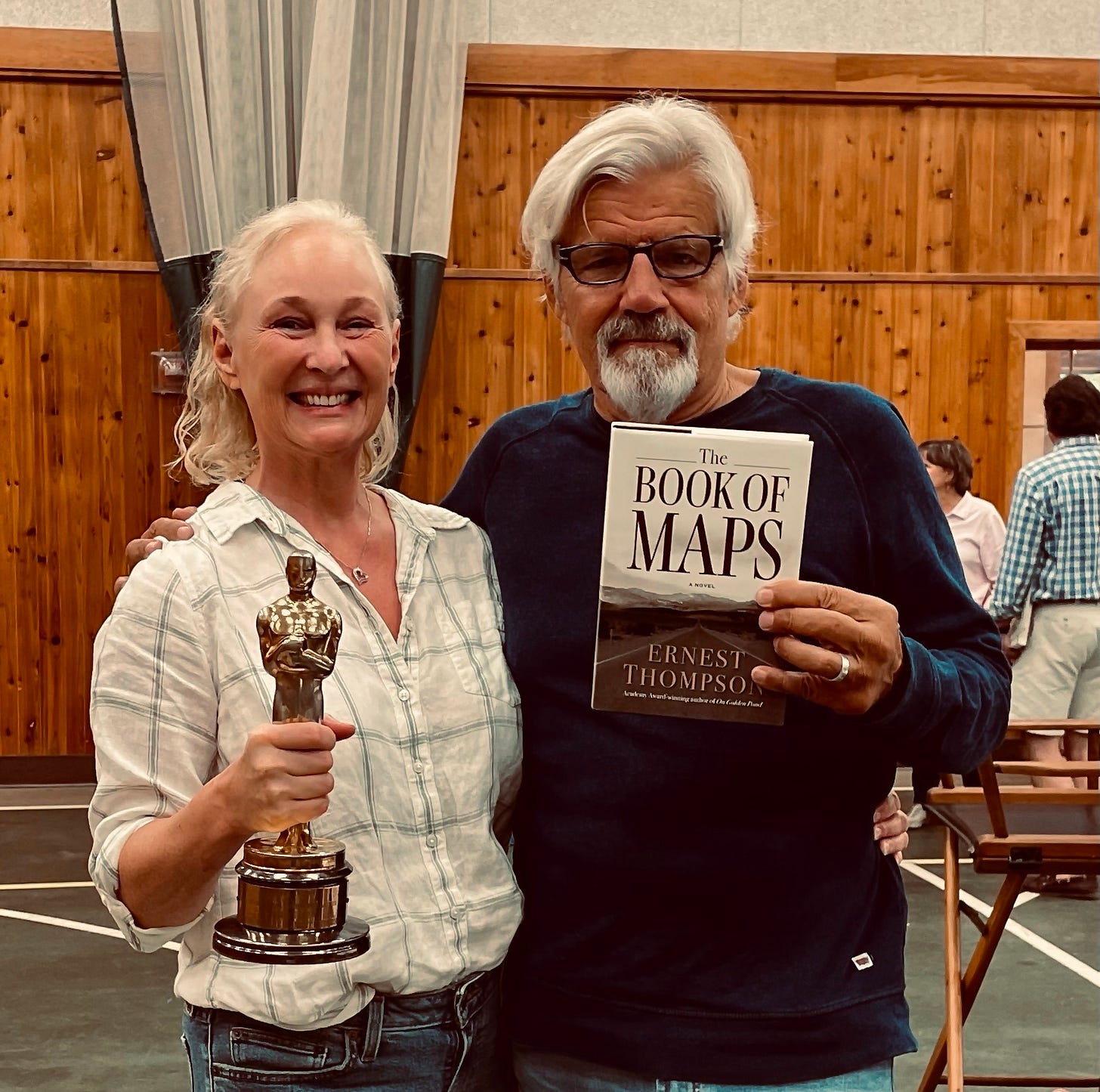Holding the Gold
What an Oscar Taught Me About What Really Matters
A couple of summers ago, Ernest Thompson—Oscar-winning writer of On Golden Pond—returned to the part of the world that inspired his now-legendary story. He came on a book tour, and the crowd gathered, eager to meet the man who gave voice to an experience so many of us know: summers on a lake, surrounded by woods, the sound of loons calling out across still water.
The original story was drawn from his childhood in central Maine, where time passed not by screens, but by shadows. Where the trees and the sky told you what hour it was. Where the days were measured by the way the sun angled through the pines and the taste of toasted marshmallows over a crackling campfire.
Ernest turned that world into words, and those words became a play. Then a screenplay. Then a film starring Henry Fonda, Katharine Hepburn, and Jane Fonda, shot on the iconic Lake Winnipesaukee in New Hampshire. It won him an Academy Award.
I was in the audience that day. I got to hold that Oscar.
It was heavier than I expected. And not just physically.
Because what I was really holding wasn’t gold-plated metal.
It was proof that stories still matter.
The Stories That Stay
On Golden Pond touches on something algorithms always miss: the generational texture of life. The way aging parents still carry dreams. The way kids from divorced homes navigate worlds split in two. The way love, in its many forms, survives us all.
These are not plot points. They are truths.
And yet… look around today.
Much of what we call “storytelling” has become a game of inputs and outputs. AI can churn out thousands of words on grief, on family, on forgiveness. But it won’t give you On Golden Pond. It won’t give you goosebumps or misty eyes or a lump in your throat. It won’t give you what Ernest Thompson gave us, and what storytellers have given us for generations:
That human-to-human connection.
That moment when something unspoken finally feels seen.
What the Algorithm Will Never Understand
We live in a time when movies are increasingly assembled like IKEA furniture with green screens, CGI, composite performances, and a studio’s best guess at what audiences want for parts. But the stories that last aren't the ones that guess. They're the ones that feel.
Like the family camp that’s been in your clan for five generations.
Like the bedtime story your mom told you, and now you tell your daughter.
Like the smell of damp earth after rain at the lake.
These things don’t optimize well. They don’t scale. But they stick.
Why I’m Telling You This
I use AI. I work with it, explore it, even teach others how to partner with it intentionally.
But I will never confuse it with a human soul.
And neither should you.
We’re in a moment where we need to remember that not everything has to be efficient, viral, or optimized. Some things just have to be true.
So hold tight to your stories. Don’t let the scroll erase them. And when you have the chance to tell one that matters, tell it like someone’s life depends on it.
Because it might.


